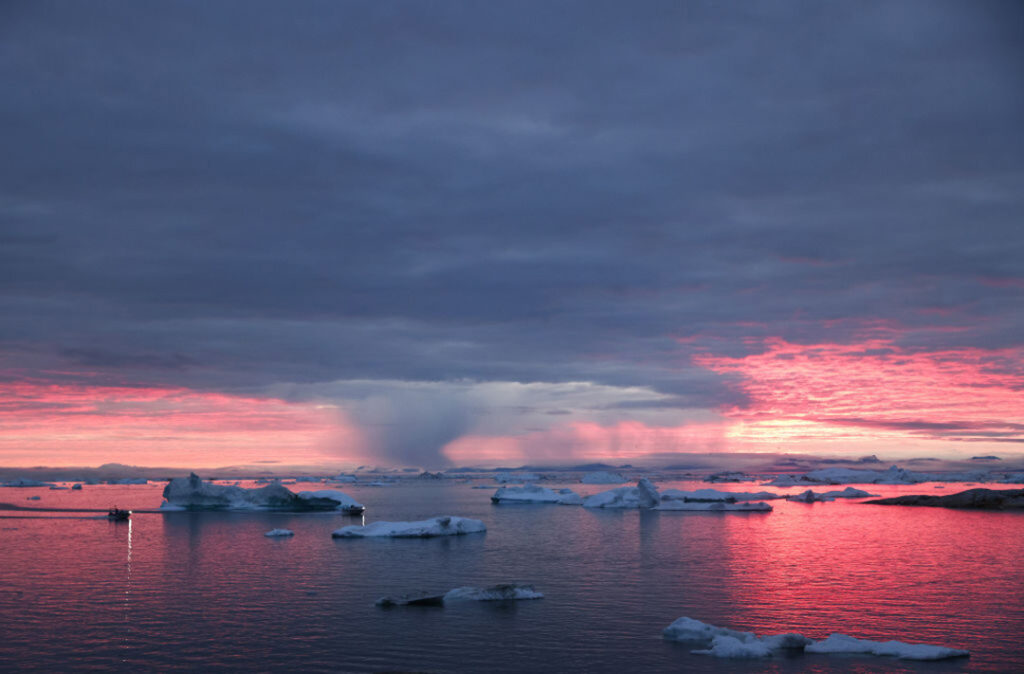NETHERLANDS ARMED FORCES
The polar regions are important for the Netherlands and for the health of the planet. Their vulnerable ecosystems have been severely affected by climate change, which is leading to major ice loss and is threatening the biodiversity of the polar regions. These developments have both direct and indirect consequences for the Netherlands, such as sea-level rise due to the melting polar ice caps, more extreme global weather, changes in biodiversity, new economic opportunities and changing geopolitical relations.
For some time now, Dutch polar policy has rested on three key concepts: sustainability, international cooperation and scientific research. Even during this time of rapid change, these cornerstones remain relevant, and the Netherlands continues to regard them as the foundations of its polar policy. All aspects of climate change, safety and security now receive more attention than they did in the past.
The Netherlands will continue working to protect the environment of the polar regions, strengthen international cooperation and ensure that economic activity is sustainable. In the Arctic region, Dutch efforts focus on protecting human interests, the environment, and international security and stability. Where there is economic activity, we encourage compliance with international agreements and standards for sustainability.
These efforts take several forms, including support for and (where necessary) reinforcement of the international legal and administrative frameworks, based on the United Nations Convention on the Law of the Sea. We help preserve political stability as an active observer at the Arctic Council and in our bilateral contacts with the Arctic states, where we emphasize the importance of cooperation and engagement on the part of all relevant actors.
With developments in the region accelerating, dialogue and cooperation are more important than ever. The Netherlands intends to step up its diplomatic efforts in the Arctic region, within the limits of our existing resources and capacity, to ensure that humankind’s relationship with the polar regions is safe and sustainable. (Pictured: The sun sets as rain falls beyond floating ice and icebergs in Disko Bay above the Arctic Circle.)
Arctic security
The Arctic has traditionally been a region in which activities have been undertaken in a spirit of close cooperation. It is of the greatest importance that it stays that way. We have a collective interest in science, sustainability and international cooperation, and not in a geopolitical arms race. Still, it is important to note that a military conflict in the Artic seems unlikely in the near future.
To preserve the delicate balance between a changing geostrategic reality and keeping the Arctic a stable and low-tension region, we should be vigilant and keep our deterrence up. This is especially important as future conflicts could have a spillover effect to and from the Arctic. We should also continue to invest in deepening and strengthening international cooperation on political-military issues regarding the Arctic through the Arctic Security Forces Roundtable and also by working together in NATO, the European Union and other multinational organizations, including the Northern Group and the Joint Expeditionary Force.
We should face any future challenges regarding the Arctic from a position of collective strength while also remaining mindful of the effects our force posturing and messaging could have on the dynamics of Arctic security.
Arctic security and the Netherlands
The Netherlands keeps a close eye on security developments in the Arctic. The Netherlands is not a direct Arctic state. However, a future deterioration of security in the Arctic could have profound consequences for the Netherlands.
The Netherlands, like its allies, highly depends on the uninterrupted flow of goods, data and telecommunications in and out of our country for its prosperity and functioning. Increased tensions in the Arctic and High North could, especially in future scenarios where we see more economic activity in the region, disrupt these critical flows.
The strategic goal of the Netherlands is therefore to keep the Arctic a stable and low-tension region where cooperation between countries is the main operating principle to solve differences.
IMAGE CREDIT: AFP/GETTY IMAGES

